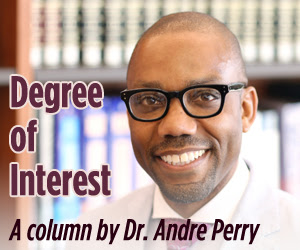OneApp audit says most N.O. public school students attend class outside their neighborhoods
A New Orleans public school enrollment system analysis says most students get admitted into their top choices. However, the system has experienced a drop in applicants getting their top choices in recent years as more high-performing schools begin to join the centralized process.
Eighty-four public schools in New Orleans use a computerized enrollment lottery system called OneApp to assign students to seats based on family preference and school priorities. Families can apply to up to 12 schools in OneApp for their child during a "main round" process. Parents unhappy with their choice from the main round get another chance to select their desired school during "round 2" of OneApp.
State auditors reviewed first-round OneApp results in New Orleans from the 2014-15 school year to the 2018-19 academic year, according to a 31-page report released Tuesday afternoon (Aug. 14) by the Louisiana Legislative Auditor's office. An early summary of the auditwas obtained by NOLA.com | The Times-Picayune last week. The full audit provides more details and tweaks to some of the report's numbers.
The full performance audit, spurred by a request by State Rep. Joseph Bouie, D-New Orleans, now says 65.5 percent of the 10,749 applicants received one of their top three choices for the 2018-19 school year. The earlier version of the audit's summary said about 75 percent of students received one of their top choices.
The audit said 44.8 percent of students received their first choice. However, the percentage of students receiving their top choice in the first round decreased from 58 percent to 44.8 percent over the time period that was studied.
The percentage of students receiving one of their top three choices overall also dropped from 77.7 percent to 65.5 percent during that Continue reading: OneApp audit says most N.O. public school students attend class outside their neighborhoods | NOLA.com



Big Education Ape: UPDATE: School choice sounds great in theory—but who does the choosing? | Hechinger Report - https://bigeducationape.blogspot.com/2013/12/school-choice-sounds-great-in-theorybut.html







